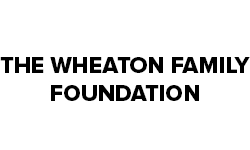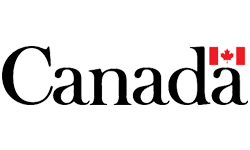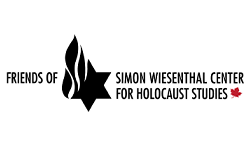CITIZENSHIP RESOURCES GRADE 8: LIFELONG LEARNING CITIZENS
Part A
Broad Area of Citizenship
Overview and Desired Results of Citizenship Study
Enduring Understandings of Citizenship Study
By exploring the diverse historical perspectives, in Canada and globally, the Grade Eight student understands the importance of decision making in the democratic process and how individual perspective and personal choice affect the decision making process. They further extend their investigations to explore the inequities of power that exist in Canada and the outcomes of decisions on a variety of cultures. Students continue to develop skills for advocacy within a society and understand the importance of the advocacy process.
Students will understand that:
- History and current events are understood through diverse historical perspectives.
- Democracy requires discussion and consideration of alternate points of view in order to find a balance between individual perspectives.
- Citizens value the needs of the collective common good and consider how their actions impact the collective well-being.
- Canadian multi-cultural policies challenge citizenship tenets and require consideration of multiple perspectives.
- Canada’s history includes First Nations, Métis, and Inuit governance and perspectives and each have contributed to Canadian identity.
- Decision-making is a complex process with far-reaching impacts.
- Engaged citizens strive to be knowledgeable, uphold their rights, and act on their responsibilities.
Knowledge and Skill Development
- Appreciate and seek to understand diverse cultural perspectives
- Understand the inequities of power and authority that can accompany diversity
- Understand the importance of, and develop skills for, advocacy
- Appreciate that citizenship requires involvement, thought, discussion, and learning about issues that impact others nationally and globally.
Essential Questions
- How do you determine fairness?
- What influences your decision-making?
- How large is your sphere of influence and what can you control?
- What is the relationship between the natural environment and the development of society
- What responsibilities come with affirming a multi-cultural society?
Curriculum Outcomes and Indicators
Sask. Curriculum Outcomes / Student Friendly Outcomes
IN8.1
Investigate the meaning of culture and the origins of Canadian cultural diversity.
Indicators:
- Create an inventory of cultural elements people throughout the world have in common, regardless of where they live (e.g., transmission of values through education, spiritual systems, ways of governing themselves, ways of satisfying needs and wants, family structure, means of self-expression, strategies for recreation and play).
- Formulate a definition of culture from responses to the question, “What is culture?”(e.g., a group’s beliefs, norms, institutions and communication patterns; a learned way of living shared by a group of people).
- Examine the extent to which cultural groups are able to retain their cultural identity in Canada, with reference to the elements of culture, including kinship patterns (e.g., how many children are perceived relationship to the aged, family networks, living arrangements, rites of passage), artistic patterns, (e.g., self-expression in visual arts, music, literature, dance, fashion), religious patterns (e.g, tenets of doctrine, worship habits, place of religion in daily life), education patterns (e.g., methods of passing on the culture, who attends school, who is eligible for higher education), recreational and play patterns (e.g., sports, games, traditions, celebrations).
- Analyze shared characteristics among First Nations, Inuit and Métis cultures in Canada.
- Investigate why First Nations, Inuit and Métis communities strive to preserve and revitalize their languages, and determine the consequences of the disappearance of cultures and languages.
- Describe the purposes and results of heritage languages and bilingualism policies in Canada and Saskatchewan.
- Identify questions and issues of importance to Francophone people in Canada and Saskatchewan (e.g., linguistic and educational rights, changing demographics), and assess the impact of language and education laws on the Francophone community.
- Analyze the impact of language and education laws on minority groups in Canada.
IN8.2
Appraise the influence of immigration as a factor in Canadian cultural diversity.
Indicators:
- Research reasons for diverse peoples choosing Canada as a home (e.g., economic opportunity, economic hardship or war in the country of origin, reunification of family, escape from religious or political oppression).
- Construct a timeline of the historical immigration patterns in Western Canada.
- Investigate the evolution of Canada’s immigration policy and assess the impact on historic and contemporary immigration patterns.
- Assess the fairness of Canada’s current immigration policy by conducting an inquiry to determine if the ancestor of a student or a community member would be admitted to Canada by today’s criteria (recognize that not all students will be descendants of immigrants, such as Indigenous students or those who are recent immigrants).
- Assess the benefits and challenges of the multicultural policy in Canada.
PA8.1
Contemplate the implications of Canadian citizenship on the life of Canadians. / Look at a variety of aspects of being a Canadian citizen and think of how those affect our lives.
Indicators:
- Trace the changes in how citizenship has occurred for Canadians over time, including current categories of citizenship.
- Analyze the contribution of two historical events in the evolution of Canadian citizenship to the nature of citizenship in Canada today (e.g., Elections Act, 1900; ‘bluebird’ nurses in WWl obtain the vote in the 1917 federal election; Canadian women obtain the right to sit in the House of Commons, 1919; the contribution of the famous five; Federal Elections Act, 1920; Saskatchewan Bill of Rights, 1947; Canadian Bill of Rights, 1960; the Charter of Rights and Freedoms in Canada, 1982).
- Investigate the effects of the Canadian Charter of Rights and Freedoms on individuals and groups (e.g., language rights; right to reasonable access to justice in trials; same sex marriage; civil protections).
- Investigate the provisions of the Indian Act, and its effects on the people of Indigenous ancestry.
- Compare and evaluate the citizenship processes in place for a person born in Canada and a person entering the country (including the citizenship test and the oath of citizenship).
- Examine the personal implications of the rights and responsibilities of Canadian citizenship.
DR8.1
Develop an understanding of the significance of land on the evolution of Canadian identity.
Indicators:
- Examine the influence of the land on the Canadian personality depicted in literary texts, songs, media presentations, visual art and dance, sport and recreation.
- Analyze the relationship between the traditional Indigenous concept of land (an animate being, the source of life) and the contemporary Western European notion of land (a resource to be owned and exploited) through the centuries.
- Illustrate on a map various designated lands in Canada (e.g., lands set aside such as reserve lands, settlement ands, heritage sites, homesteads, wildlife refuges, parks, crown land, and trans-boundary areas) and explain such designations.
- Investigate the importance of the land in the Canadian economy (e.g., agriculture, trapping, hydroelectricity, fishing, mining, forestry, tourism), and speculate about the impact on the identity of Canadians.
- Investigate the impact of land on the identity of First Nations, Métis, and Inuit peoples.
© 2023 Concentus Citizenship Education Foundation Inc. All Rights Reserved.









